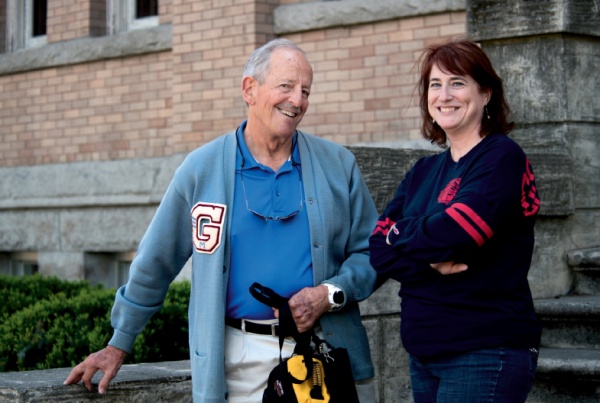Race. Gender. Religion.
You don’t have to look far to find inflammatory comments when these topics land on news and social media sites. People unfriend one another over opposing opinions (or how they’re expressed), and wherever participants can post in anonymity, the comment feed becomes a war zone.
During the “Courageous Conversations” led by the Gonzaga Student Body Association, however, students, faculty and staff members gather for respectful dialogue. They learn about these heated topics, and hence about themselves, within the context of their own personal experience and in relation to events making headlines.
This spring, when the scheduled discussion was the Freddie Gray incident in Baltimore, there had also been an incident closer to home: the shooting of a Hispanic man by police in Pasco, Washington. One Gonzaga student from the Pasco area, relating to the unfolding chaos in Baltimore, said to a friend, “All I could think was, ‘Please don’t burn down my hometown.’” Others expressed their anger and frustration that some classmates seemed oblivious to either event. This kind of dialogue and its introspective purpose is inherently
Jesuit, and the impact lasts a lifetime.
Dennis Shea (’65) is a testament to that. A resident of St. Louis, Dennis lives just 20 minutes from Ferguson, the site of a similar racially charged incident. Responding to my previous letter regarding “Catching Zag Fever,” Dennis shared that for him, all the conflicts surrounding race and cries for justice brought his mind back to his experiences at Gonzaga. His encounters 50 years ago, as a white student who had high regard for black classmates when segregation was still hot, urged him to action. He donned his old GU letter sweater and drove to Ferguson where he struck up an encouraging conversation with business owners who had just been featured in the New York Times. And – because he felt like he just had to do something – gave them a little cash to help the next few customers.
I’m inspired by Dennis and by our current students, who share a common commitment to viewing the world and all its problems through the lens of what we can do to make it better. In seeing problems, we identify solutions; in witnessing pain, we offer compassion; in viewing disheartening trends, we step out of our comfort zones to start a crucial conversation.
By Kate Vanskike, Editor, Gonzaga Magazine
Originally published in the Fall 2015 issue, available at www.gonzaga/edu/magazine.
